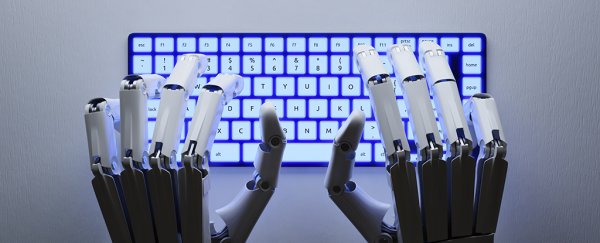It may be time to add 'novelist' to the list of professions under threat from super-smart computer software, because a short story authored by artificial intelligence has made it through to the latter stages of a literary competition in Japan. It didn't scoop the top prize, but it's not a bad effort for a beginner.
The AI software isn't self-aware enough to think up and submit its own work though (not yet, anyway) – the short-form novel was written with the help of a team of researchers from the Future University Hakodate in Japan. Human beings selected certain words and phrases to be used, and set up an overall framework for the story, before letting the software come up with the text itself.
One of two submissions from the university made it through the first round of the Nikkei Shinichi Hoshi Literary Award ceremony – perhaps the entry's title, which translates as The Day A Computer Writes A Novel, should have been enough to tip the judges off – but the competition is unique in that it openly accepts entries from non-human writers (Shinichi Hoshi himself was a science-fiction author).
Of 1,450 or so novels accepted this year, 11 were written with the involvement of AI programs, the Japan News reports. The four-stage screening process is kept secret but judges aren't told in advance which submissions are written by actual people and which have robot authors behind them.
Science-fiction novelist Satoshi Hase, who was involved in the competition, said the AI book was "well-structured", but had "some problems" as well, including the quality of the character descriptions.
"So far, AI programs have often been used to solve problems that have answers, such as Go and shogi," said Hitoshi Matsubara, who led the team of researchers from Future University Hakodate. "In the future, I'd like to expand AI's potential [so it resembles] human creativity."
Creativity is hard to emulate inside a computer, but it's surely only a matter of time before AI programs have the intelligence and the data to be able to do a passable job: automated software is already responsible for writing certain financial and sports reports where the key facts can be arranged in a straightforward template.
Political speeches are another target for up-and-coming robot writers, as they tend to follow a familiar pattern, with repeated phrases and topics.
As is usually the case, the database the AI has to work with is crucial – as long as there's enough data to draw upon (4,000 speeches were used for the latest research), then today's AI software is clever enough to produce its own variations on a theme.
